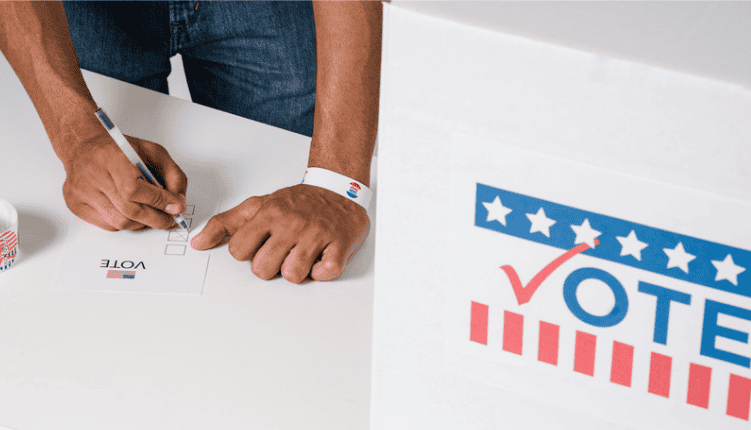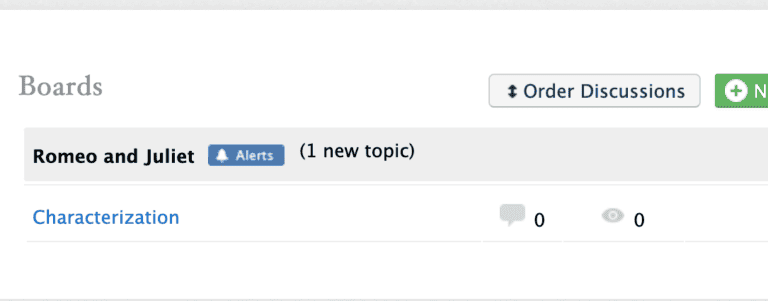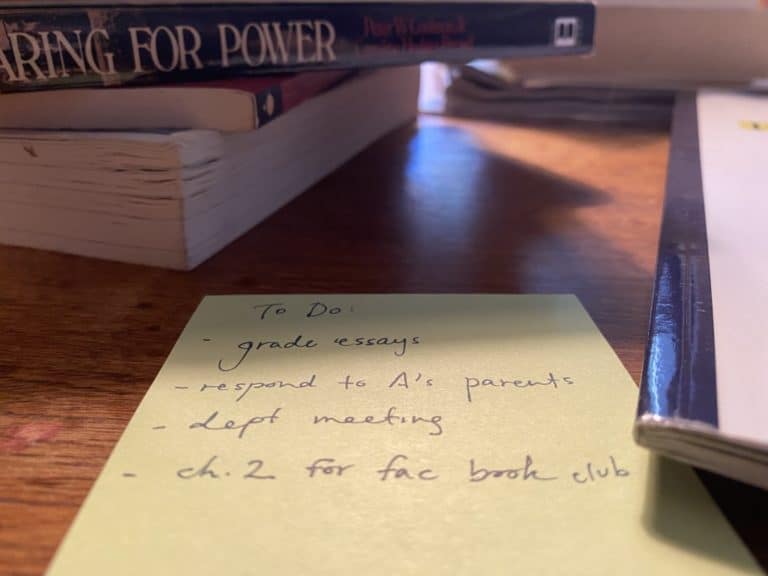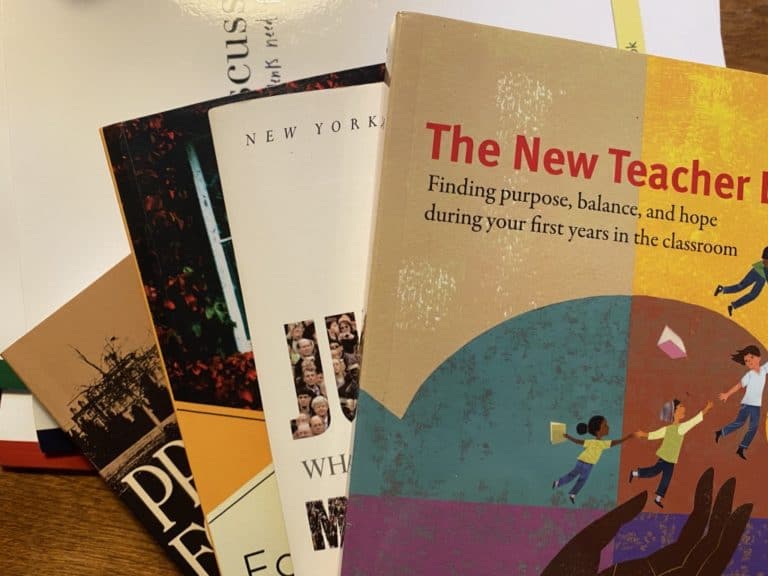Building Understanding through Civic Engagement: A Conversation with Spencer Burrows
Spencer Burrows is the Equity and Civic Engagement Coordinator and 11th Grade Dean at Pacific Ridge School in Carlsbad, CA. What follows is a conversation between Spencer and R.E.A.L.® founder Liza Garonzik. This conversation has been lightly edited for clarity.
Liza: Spencer, we are so excited to have you here. You are so committed to teaching and modeling discussion skills. You’ve been a teacher, an administrator in schools, and a civil servant. You live and breathe the skills that are at the heart of civil discourse. We appreciate your thought leadership, and we’re going to dive into some of the programs you’ve created.
But first, let’s start by hearing about your story and how your personal background brought you to this work of teaching young people the power of engaging with each other.
Spencer: Absolutely. I taught for a year after college in Los Angeles, then I started law school in San Francisco, at UC Hastings College of the Law. I realized partway through that I really wanted to bring that work back to education. When I graduated, I came back to LA to work with and help build charter school organizations.
In my work with charters, I also started getting my students involved in some of the advocacy work at the local and state levels. Through all these different moving pieces, I really saw the power of teaching students effective communication skills.
I was also coaching debate and mock trial and various activities that moved around the same space of effective, clear communication and public speaking. It made me think, we’re doing great work with these small subsets of students who are involved in these activities, but how do we scale that to whole groups of students? It was always a big question for me, and I’ve tried various methods, but the bottom line is it’s all kind of dependent on the situation.
Fast forward to the present: I’m now the Equity and Civic Engagement Coordinator and 11th grade dean at Pacific Ridge. Over the past two years, I’ve been trying to figure out how to engage our whole student body, grades 6-12, on different discussion protocols and taking on big topics and issues.
I’ve gotten to speak with people who are also operating in the space, and that’s been very interesting and illuminating. For example, I got a chance to connect with Harvard professor Tarek Masoud last summer. He has been making a real push to teach his undergrads the civil discourse skills that they clearly were not taught elsewhere.
That made me think backwards about how we are preparing, or not preparing, our students for those conversations. I feel like part of the progression is during this whole COVID phase, schools put on a lot of guardrails in a lot of different ways, because that’s what was needed in the moment. That being said, I don’t think all these guardrails are still necessary, and I don’t think they all help students. When we’re talking about civil discourse, students need to learn how to disagree with each other respectfully. And if we’re not letting students disagree, I don’t think we’re letting them engage in that work, and we’re really doing them a disservice. In some spaces, disagreement has almost come to be seen as a problem. In the real world, there’s disagreement all the time. If we’re going to have a pluralistic society, we need to be able to operate with people who we don’t agree with. Students need to learn how to have those respectful conversations, and I really think that is part of our job.
When we’re talking about civil discourse, students need to learn how to disagree with each other respectfully. And if we’re not letting students disagree, I don’t think we’re letting them engage in that work, and we’re really doing them a disservice.
Spencer Burrows
Liza: You’re singing our tune here. At R.E.A.L.®, we’re all about taking the art of discussion and making it teachable starting in elementary school and scaffolding it all the way up to high school.
To zoom out for a second: I know you’re a civic leader in your local community as well as an educator. Broadly, how do these two hats work together for you, and what do you see as the purpose of education and teaching students about discussion in our democracy?
Spencer: As a commissioner in the city of Carlsbad, I not only get to interact with my fellow commissioners, but also with the city council and our mayor. This role is actually a great connection to a lot of the work I’m trying to do with our students. To repeat the old phrase: all politics is local. I think on the positive end, that connects to one of the best ways to teach our students about politics and civics: at the local level. It’s something I’ve been pushing for, especially over the past few years. Not only do I think local politics is far more tangible and reachable for students and their families, it also avoids some of the more contentious issues that make these discussions so hard at the national level.
Not only do I think local politics is far more tangible and reachable for students and their families, it also avoids some of the more contentious issues that make these discussions so hard at the national level.
Spencer burrows
In my role as commissioner, I’m now able to bring a lot of local issues to my students and involve them in work with our city council and mayor and other agencies that are very eager to work with our students, which I think is a double-plus. It’s a pretty symbiotic relationship: our kids learn a lot about civics and government, and we are doing something for the community. Everyone wins.
Liza: I love that emphasis on local community, particularly in this hyper-connected age.
I love the idea of helping Gen Z understand where their activism is going to matter most. I think that’s a really extraordinary and powerful perspective that I have not heard articulated anywhere else. So thank you for that.
I know you spend basically all day every day with kids. It’s clear that discussion is hard for kids, and discussion across difference is particularly hard for kids right now. What do you do to scaffold civil discourse in your classroom and across your campus?
Spencer: I think we need to look at discussion skill-building as literally that – building a skill. When you learn math, you don’t start with calculus: you start at the base level and build yourself up.
I think part of the problem that teachers have with engaging with some of this work is that we often don’t have discussion frameworks in the same way we all learn math the same way at some point. We know how that progression should look. Discussions are the Wild Wild West.
Liza: Exactly. That’s why I built R.E.A.L.®
Spencer. Yes. And to your question, how do you scaffold it? I think breaking down the mechanics of the conversation is really important. But now you’ve got to look at the topics. For me, the end goal is tackling some pretty divisive, controversial topics that are the discussions they will need to have as adults.
When they learn discussion protocol, we start with easier, lower-stakes topics, then we build up to something harder. By harder: every community is different, and good teachers have a good pulse on their class, their kids, and what sets them off. Not shying away from discussions where there will definitely be some friction is important. We want to help students through hard conversations. The overarching message can be: you didn’t walk away from that discussion feeling great – and that’s okay. If you understand where someone else is coming from, and they understand where you’re coming from, that’s a win.
We want to help students through hard conversations…If you understand where someone else is coming from, and they understand where you’re coming from, that’s a win.
Spencer Burrows
I had some really good discussions in my economics class with juniors and seniors about the presidential debates earlier this fall, and we’ve been going through various campaign issues. Obviously, students agree and disagree about different aspects, but having those discussions continually builds their muscle memory and their level of comfort with handling these kinds of issues.
Liza: I so appreciate that. At R.E.A.L.®, we believe you can’t expect kids to have hard conversations before teaching them how to have a conversation. And the way to learn is through repeated, intentional practice – and that does not mean a high-stakes discussion once a month. You wouldn’t expect kids to show up and play varsity-level basketball without practicing, but it can be so challenging for teachers to step into and feel confident in their role in allowing time and space for that learning to happen.
In an earlier conversation, you were telling me about how you created different spaces for different kinds of discussions to happen in your classroom. How have you differentiated opportunities to engage in deeper, perhaps more difficult conversations – particularly at a moment when we have such heightened polarization in our national discourse?
Spencer: Part of what I love about the work I’ve been able to do over the last two years is the ability to create programming for the entire school population. I think the best way to hit all the areas you’re trying to hit is to realize that all the students should be receiving some kind of information or content about the election and civics and government – enough where they can at least make sense of what they’re seeing on TikTok.
We’re in this election space, doing election programming in classes, at least on the level of how things work. Classes are having some simple discussions about different events and the flow of the election. But I did realize that I needed to give some space for students who really want to dive into these issues in depth, to the point where a) not all of their classmates are probably going to want to talk about that and b) not all of their teachers will, either. Instead of trying to force that on classes and have a fairly negative reaction, I’m offering opt-in sessions for students during lunch, where we gather and only talk about the election.
In these conversations, I could tell that some students were sharing things they’ve probably been holding onto for a bit. And it gave me the chance to dive into some pretty esoteric areas of debate strategy. I’m really trying to explain that there are reasons behind why candidates are saying certain things.
When you think about effective discussion, you really need people to buy in – and I think you need to be cognizant of what discussion topics people are going to buy into. However, if you’re posing a discussion topic that is going to turn off three-quarters of the participants, it’s not going to be a good discussion – period. If that’s the case, maybe you should just have discussions with the students who are super fired-up about the issue.
I think offering those two ends has been super helpful. On one end, all students are receiving baseline programming. And, almost like enrichment, we also have space for the students who want to go above and beyond and really dive into this topic.
Liza: That is so important. I often talk about how campuses treat discussion like a pickup sport. I really like the idea of doing intentional skill-building in the classroom. And for the varsity speakers, who might also be varsity listeners, it can be game time. I think building that self-awareness while also creating a space for kids to run as hard and fast as they can is amazing. So often those kids don’t get the outlets they need, and that can cause trouble for the whole community.
You’ve given us so much to think about, Spencer. My last question is very concrete. Say a Gen Z student is inspired to get involved in the democracy around them. Where would you recommend they start?
Spencer: Watch TikTok – and then do the exact opposite of whatever the message seems to be. That’s step number one.
I’ve been pushing my students to get involved with local campaigns. When I was in college, I interned for the governor of California, and that was an incredible experience. I learned more about politics in that role than I ever would have in any class. I also saw that government is built on student labor. There are a lot of opportunities for kids to get involved, and the big advantage to being involved in local races is that students will get to know their communities in ways they never would have otherwise.
We haven’t talked a whole lot about social media, and maybe for good reason. I think part of the problem with students getting sucked into these echo chambers on social media is that they’re not actually communicating with anybody: they’re just piling on or agreeing. And if they see something they disagree with, they can just unfollow. That is the opposite of what you need to do in a democracy. I think in-person contact with your community is a really powerful way to get students involved.
Part of the problem with [social media] is that students are not actually communicating with anybody…And if they see something they disagree with, they can just unfollow. That is the opposite of what you need to do in a democracy.
Spencer Burrows
Liza: I agree. I think there’s nothing better than students realizing the impact they can have, and the way to do that is to get out from behind your screen and start talking and listening to people – whether or not you know them, whether or not you agree with them.
Spencer, I’m really thankful you took time today to share the myriad ways you’re helping students not just build the skills to do that, but then actually facilitating opportunities for them to do that and reflecting on it. Thank you for the work you’re doing.




